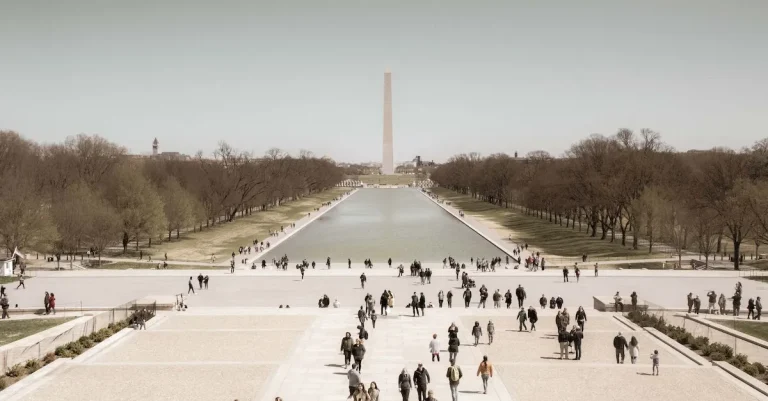Are Resort Fees Illegal in Las Vegas?
When booking a hotel room in Las Vegas, you’ll often see enticingly low rates that end up much higher once resort fees are added. These mandatory fees charged by hotels for amenities and services have drawn scrutiny from regulators and frustration from travelers.
But are these controversial fees actually illegal? The short answer is that in most cases, no, resort fees themselves are not illegal in Las Vegas. However, the Federal Trade Commission has cracked down on some deceptive advertising practices around resort fees. While the fees are allowed, hotels are now required to be upfront about the full cost of a room including these fees.
This article will provide a deep dive into the murky legal status of Vegas resort fees. We’ll explore the history of resort fees, consumer protection lawsuits, regulatory actions, and disclosure laws. You’ll learn why these fees exist, strategies to avoid them, and whether any hope remains that they may one day be banned.
History and Prevalence of Resort Fees in Las Vegas
Las Vegas, known for its glamorous hotels and world-class entertainment, has seen the rise of resort fees in recent years. These fees, also known as amenity fees or destination fees, have become a common practice among hotels in the city.
When Resort Fees First Appeared
The introduction of resort fees in Las Vegas can be traced back to the early 2000s. Hotels began implementing these fees as a way to cover the costs of additional amenities and services that were not included in the base room rate.
This allowed hotels to advertise lower room rates while still generating revenue from guests.
Resort fees typically cover services such as Wi-Fi access, fitness center usage, pool access, and other amenities that guests may expect when staying at a luxury resort. However, these fees are often mandatory and can add a significant amount to the overall cost of a guest’s stay.
How Many Hotels Charge Them Now
Currently, the majority of hotels in Las Vegas charge resort fees. According to a study conducted by the American Hotel & Lodging Association, as of 2021, approximately 97% of hotels in the city include resort fees in their pricing structure.
This means that only a small percentage of hotels in Las Vegas do not charge these additional fees.
It is important for travelers to be aware of resort fees when booking a hotel in Las Vegas. These fees can vary greatly from one hotel to another, ranging from $20 to $50 per night. Some hotels may also charge a daily resort fee plus tax, which can further increase the overall cost of a guest’s stay.
While there has been some debate about the legality of resort fees in Las Vegas, they are currently considered legal as long as they are disclosed to guests prior to booking. The Federal Trade Commission has recommended that hotels prominently disclose these fees to avoid any potential consumer deception.
Why Hotels Say Resort Fees Exist
Resort fees have become a contentious issue in the hotel industry, especially in popular tourist destinations like Las Vegas. While some travelers argue that these fees are unfair and deceptive, hotels have their own reasons for implementing them.
Here are a couple of reasons why hotels say resort fees exist:
To Cover Rising Operational Costs
Hotels claim that resort fees are necessary to cover the rising operational costs of running a resort. With the increasing costs of maintaining amenities, providing top-notch services, and ensuring a luxurious experience for guests, hotels argue that these fees are a way to offset these expenses.
They argue that by including a resort fee in the overall cost of a stay, they can continue to offer a high level of service without compromising on quality.
According to a study conducted by the American Hotel & Lodging Association, the average resort fee in Las Vegas was $39.68 per night in 2020, a 3% increase from the previous year. This increase can be attributed to the rising costs of maintaining facilities such as pools, spas, and fitness centers, as well as the need to invest in technology upgrades and staff training to keep up with the demands of modern travelers.
As a Way to Advertise Lower Room Rates
Another reason hotels give for implementing resort fees is that they allow them to advertise lower room rates. By separating the cost of the room from the additional amenities and services provided, hotels can make their base rates appear more competitive compared to other properties in the area.
This can be especially appealing to budget-conscious travelers who are looking for the best deal.
However, critics argue that this practice can be misleading and deceptive, as the total cost of the stay can end up being significantly higher than the advertised rate once the resort fees are added. They argue that hotels should be more transparent about the true cost of a stay upfront, rather than hiding fees in the fine print.
It’s important for travelers to be aware of resort fees when booking accommodations in Las Vegas or any other destination. By understanding the reasons why hotels say resort fees exist, travelers can make more informed decisions when choosing where to stay and budgeting for their trip.
Consumer and Regulator Backlash Against Resort Fees
In recent years, there has been a growing discontent among consumers and regulators regarding the prevalence of resort fees in Las Vegas and other popular tourist destinations. These fees, which are often added to the advertised room rate, have faced numerous legal challenges and have prompted the Federal Trade Commission (FTC) to take action.
Lawsuits Claiming Deceptive Practices
Resort fees have come under fire with a series of lawsuits filed against major hotels and resorts in Las Vegas. These lawsuits allege deceptive practices, arguing that the fees are not adequately disclosed to consumers at the time of booking.
It is argued that these fees should be included in the advertised price, rather than being presented as an additional charge.
One such lawsuit was filed against a well-known hotel on the Las Vegas Strip, claiming that the resort fee was misleading and deceptive. The lawsuit argued that the hotel failed to disclose the true price of the room and that the resort fee was a hidden cost that unfairly increased the overall price of the stay.
This lawsuit, along with others like it, has brought the issue into the spotlight and has raised questions about the legality of resort fees.
FTC Orders Clearer Disclosure
The Federal Trade Commission has also taken notice of the consumer backlash against resort fees. In 2017, the FTC sent warning letters to several hotel operators, urging them to improve their disclosure practices.
The letters emphasized the importance of clear and prominent disclosure of resort fees to ensure that consumers are not misled or deceived.
Furthermore, in 2019, the FTC settled with a major hotel chain over allegations that it had engaged in deceptive advertising practices by not adequately disclosing resort fees. As part of the settlement, the hotel chain agreed to implement more transparent pricing practices and to clearly disclose all mandatory fees to consumers.
These actions by the FTC demonstrate a growing recognition that consumers have the right to be fully informed about the total cost of their hotel stay, including any additional fees. The push for clearer disclosure is a step towards greater transparency in the hospitality industry and aims to protect consumers from misleading pricing practices.
Attempts to Ban Resort Fees
Resort fees have become a contentious issue in the world of travel, with many consumers feeling that they are being unfairly charged for amenities and services that should be included in the base price of their hotel stay.
In recent years, there have been attempts to ban resort fees, both at the local and federal level.
Local Efforts Have Stalled
Several cities and states have tried to regulate or ban resort fees within their jurisdictions, but these efforts have often faced significant opposition from the hotel industry. In Las Vegas, for example, a proposed bill to ban resort fees was introduced in the state legislature but failed to gain traction.
The hotel industry argued that resort fees are a way to cover the cost of additional services and amenities, and that banning them would result in higher room rates overall.
While local efforts to ban resort fees have stalled, there are still ongoing discussions about how to make these fees more transparent and consumer-friendly. Some cities have implemented regulations requiring hotels to disclose resort fees upfront, before customers make a booking.
This allows travelers to make more informed decisions about where to stay and how much they will ultimately be paying.
Pending Federal Legislation
Recognizing the need for a nationwide solution, there is currently pending federal legislation that aims to regulate resort fees. The bill, known as the “Hotel Advertising Transparency Act of 2019,” would require hotels to include all mandatory fees in their advertised room rates.
This means that when you see a hotel room advertised for $100 per night, that would be the actual price you pay, including any resort fees.
The legislation has garnered support from consumer advocacy groups, who argue that resort fees are deceptive and misleading. They argue that consumers should not have to navigate through hidden fees and surprise charges when booking a hotel room.
It’s important to note that this federal legislation is still pending, and its outcome is uncertain. However, the fact that it has gained traction and support reflects the growing public dissatisfaction with resort fees.
In the meantime, for travelers visiting Las Vegas and other destinations where resort fees are common, it’s important to do your research and read the fine print before making a hotel reservation. This will help you understand exactly what is included in the resort fee and determine if it is worth the extra cost.
Avoiding Resort Fees in Las Vegas
Resort fees have become a hot topic in the travel industry, especially in popular tourist destinations like Las Vegas. These fees, which are charged by hotels and resorts on top of the nightly room rate, can add a significant amount to your overall bill.
However, there are ways to avoid or minimize these fees, allowing you to enjoy your stay without breaking the bank.
Booking Directly With the Hotel
One of the most effective ways to avoid resort fees in Las Vegas is to book your stay directly with the hotel. By booking through the hotel’s official website or calling their reservations line, you have a better chance of negotiating or finding deals that exclude resort fees.
Additionally, some hotels may waive resort fees for certain loyalty program members or if you book a specific room type.
Pro tip: When making your reservation, it’s important to ask the hotel about any hidden fees or charges to ensure you have a complete understanding of the total cost of your stay.
Using Point Redemptions
If you’re a member of a hotel loyalty program, you may have the option to redeem your points for free or discounted stays. This can be a great way to avoid paying resort fees altogether. Many hotels offer loyalty program members the ability to use their points for a complimentary stay, including the resort fees.
This not only saves you money but also allows you to enjoy the perks and amenities of the hotel without any additional costs.
Did you know? According to a survey conducted by TravelZork, approximately 78% of hotels in Las Vegas charge resort fees, with an average fee of $39 per night.
Considering Off-Strip Properties
Another option to avoid resort fees in Las Vegas is to consider staying at off-strip properties. These hotels are typically located a short distance away from the main Las Vegas Strip but still offer comfortable accommodations and amenities.
Off-strip properties are known for having lower rates and often waive resort fees altogether. Plus, you may get the chance to experience a different side of Las Vegas away from the bustling crowds.
Fun fact: The highest resort fee in Las Vegas is currently $45 per night, charged by a renowned luxury resort on the Strip.
Conclusion
In conclusion, while resort fees themselves are currently legal in Las Vegas, their controversial nature means the fight over them is likely to continue. Hotels rely heavily on the income these fees generate even as consumer advocates push for reforms.
For now, the best a savvy traveler can do is factor them in when comparison shopping for hotels and look for ways to avoid them through direct bookings, reward stays, or choosing smaller independent properties. But in the long run, pressure may continue to build for regulators or lawmakers to take stronger action on curbing burdensome resort fees.








